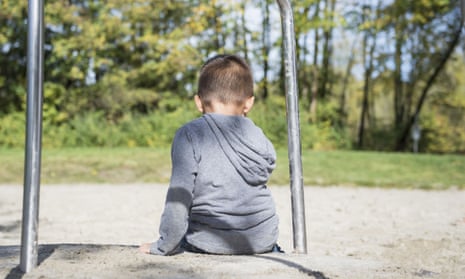Seven out of 10 specialist nurses caring for the growing number of young people struggling with mental health problems believe that NHS services are insufficient.
Half of all mental health nurses working with troubled young people say child and adolescent mental health services (Camhs) are inadequate and another 20% say they are highly inadequate, according to a poll undertaken by the Royal College of Nursing (RCN) for the Guardian. Only 13% believe they are good or very good, while the rest say they are adequate.
The survey found serious concern among frontline nurses that the rationing of access to care and shortage of beds are so acute that young people risk harming or killing themselves.
Of the 631 mental health nurses working in Camhs, 43% said services were getting worse, despite government promises of extra investment and assurances that more young people would be able to receive care.
“This vital service has been totally underfunded for years. The pressure on the service is not only appalling for children, young people and their families, but staff morale and mental health too,” one nurse said.
Another nurse said: “Children and their families are suffering due to poor Camhs, support and availability. The criteria for referral means children are having to attempt or threaten to take their own lives before receiving support.”
Asked to list what they saw as the main problems with Camhs, 73% of respondents cited too few nurses, 72% said delays in patients getting appointments, 69% pointed to young people being sent “out of area” to get inpatient care, because of bed shortages in their area, and 59% cited the inability of staff to give patients as many appointments or as much care as they need.
Fiona Smith, the RCN’s professional lead for children and young people’s nursing, said the survey showed that services for seriously troubled young people are “completely overstretched” in the face of growing demand for care.
“These results tell us that things are seriously poor. Mental health nurses working in children’s services tell me that they have never known it so bad,” she said.
“We are failing young people with mental health problems by not providing services and interventions in a timely manner. It’s foolish of the NHS and the government not to really focus on meeting these young people’s needs, because we know that with [the] three out of four adults with mental health problems, their symptoms began in childhood.”
The Liberal Democrat MP and former health minister Norman Lamb said the findings showed that NHS services for troubled young people “are buckling under the pressure. The truth is that we are letting down a whole generation of young people by failing to invest in essential support.
“We have to end the historic underinvestment in children’s mental health. It makes no sense to spend just 6% of the total mental health budget on children and young people when we know that 75% of adult mental ill health starts before the age of 18.”
Sarah Brennan, the chief executive of the charity Young Minds, said lengthening waiting lists for care and higher thresholds for troubled children to qualify for treatment were likely to exacerbate their suffering.
“Without treatment, problems are very likely to escalate and children are more likely to self-harm or become suicidal, to be violent and aggressive, or to drop out of school, which can ruin their prospects for the future.
“Delays can also have a disastrous effect on families, with parents forced to leave their jobs to look after their children.”
The Conservative-Liberal Democrat coalition government promised to invest an extra £1.4bn in children’s mental health services by 2020. But frontline staff, the Royal College of Psychiatrists and mental health charities are sceptical about whether this funding is being delivered. “Too much of that money has been diverted elsewhere and is not getting through to where it is desperately needed,” Lamb said.
Official NHS workforce figures provided to the Lib Dem MP by the House of Commons library show that the number of consultant psychiatrists working with children in England has only gone up slightly over the past six years, despite the far greater recognition of young people’s psychological and psychiatric issues.
The number of full-time equivalent consultant psychiatrists rose from 622 in May 2010 to 649 in May this year.
The number of non-consultant doctors working in Camhs fell over the same period, from 367 full-time equivalents in May 2010 to 314 in May 2016.
The number of specialist mental health nurses working in NHS hospitals went down by 10% between 2011 and 2016.
